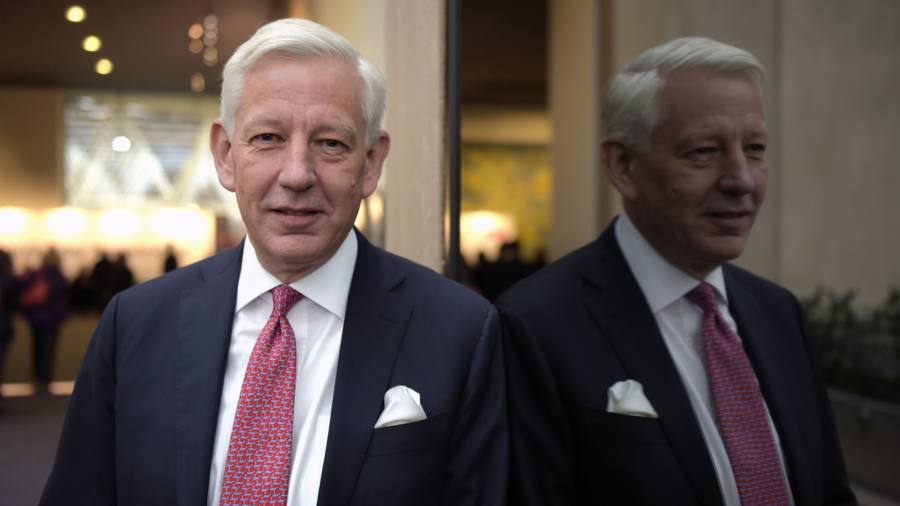
Rio Tinto is to refocus on dealmaking amid concern the miner missed out on growth opportunities because of the “baggage” of past deal disasters, its new chair has said.
Dominic Barton, a former managing partner at McKinsey who took over at Rio in May, told the Financial Times Mining Summit he felt the company had missed opportunities in recent years, in part because of fears over investors’ reaction given its chequered past in mergers and acquisitions.
“I think there was a lot of reluctance to even consider things because . . . of what would be the perceived consequences,” he said. “That said, there is a fantastic M&A department in Rio Tinto. They had ideas. There are suggestions they had three to four years ago . . . they were very good suggestions.”
Rio bought aluminium group Alcan for $40bn at the top of the cycle in 2007, a deal that led to vast impairments and overshadows the miner to this day. The 2011 purchase of a Mozambique coal project, almost entirely written down after two years, forced the departure of chief executive Tom Albanese in 2013.
Barton, who is overseeing a cultural overhaul of Rio after the Anglo-Australian miner’s destruction of ancient aboriginal rock shelters in 2020, said shareholders had been keen to impress a message of dealmaking discipline. “[It’s that], you know, ‘you start even thinking about that you’re going to get a beating,’ type of feeling,” he said.
“That was a lot of baggage to deal with,” he said. “But the ideas have been there.” Of ideas that “don’t make it in the investment committee”, he said: “Bring them to the board . . . so we can see them.”
Rio, which still makes 60 per cent of its revenues in iron ore so remains highly exposed to China’s steel sector and economy, has recently returned to dealmaking having agreed to buy the Rincon lithium project in Argentina last year for $825mn.
This year it has bid to take full ownership of Canadian miner Turquoise Hill for $3.3bn, which would give it greater control over the vast Oyu Tolgoi copper mine in Mongolia. Shareholders in Turquoise Hill, some of which oppose the deal, will vote on Rio’s offer on November 1.
Big mining groups are seeking growth opportunities in the metals needed for the energy transition such as copper, nickel, cobalt and lithium but few large projects are available.
“We have this huge shortage that we’re facing and the demand is accelerating on all fronts if we’re going to be able to do this energy transition,” said Barton. “But the ability to mine is getting harder.”
He added he was also focused on improving Rio’s operating performance after years of cost-cutting, along with its culture and its relationships with local communities.
The mining group this year published a report by Elizabeth Broderick, Australia’s former sex discrimination commissioner, that outlined widespread bullying, sexual harassment and racism at its global operations.